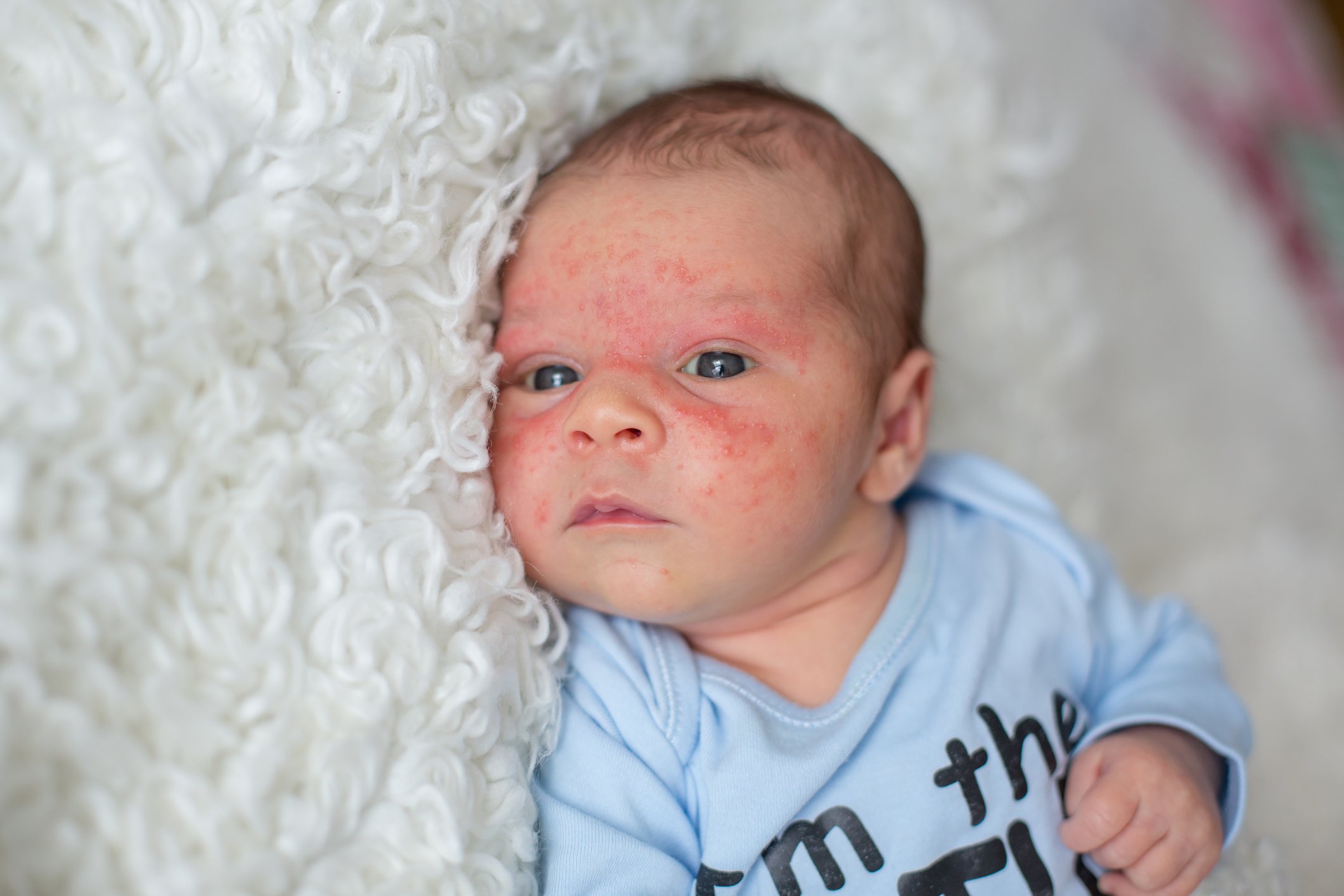Researchers are continually learning more about the underlying causes and triggers of eczema. Even today, the root cause remains a bit of a mystery. Allergy experts believe that it’s related to one’s genetics (up to 70% of people with eczema report a family history of the condition), an immune system that is sensitive to irritants and allergens, and a defective skin barrier. The result is different in each patient but generally presents with patches of itchy, inflamed, or irritated skin. Eczema is a chronic disease that can last throughout your life with periods of ‘flares’ where symptoms are at their worst, but also long periods with no symptoms at all.
According to the National Eczema Association, 1 in 10 people will experience eczema at some point in their lives. Although often thought of as childhood disease, over 16 million adults in the U.S have atopic dermatitis, the most common form of eczema.
Common Signs and Symptoms of Eczema:
- Dry or scaly skin
- Exaggerated redness
- Flaking and cracking skin
- Hyperpigmentation
- Intense itching
Beyond the physical manifestations of eczema, this skin condition also impacts one’s lifestyle. According to The Allergy and Asthma Foundation of America, people with atopic dermatitis report lifestyle and activity limits, and avoidance of social interaction because of appearance. Sleep disturbance is also a commonly reported side effect of this condition.
The First Indicator May Come During Infancy
Particularly common in infants, symptoms of this often hereditary, non-contagious condition are frequently detected before a baby is one year old. The American College of Allergy, Asthma and Immunology states that 10-20% of children may have eczema with 60 percent of those experiencing symptoms by age 1, and another 30 percent will experience symptoms by age 5.
The condition can be more severe for Black or Hispanic individuals and appears differently than in Caucasian skin. In general, children with a family history of allergic diseases such as asthma or other allergies (including hay fever) are most often at an increased risk for developing eczema.
Marching Forward with Other Allergic Conditions
Many children with eczema will see improvement in their skin by the time they are five or six years old. However, youngsters diagnosed with this condition are more likely to develop other allergic conditions later on. The American College of Allergy, Asthma and Immunology explains this correlation further. Eczema is part of the ‘Allergic March’, also called the ‘Atopic March’. This begins with the diagnosis of eczema during infancy, later followed by food allergy, allergic rhinitis (also known as hay fever) and asthma, typically in that order. Studies show up to 80 percent of children with eczema develop asthma and/or allergic rhinitis later in childhood.
Diagnosing and Treating Eczema
If your skin condition is the result of an allergy, your allergist can diagnose and treat your condition, greatly improving your quality of life.
It is first important to identify the triggers and then control the symptoms. Triggers that can make eczema worse range from rough clothing to exposure to allergens such as foods, pollens, dust mites, and pet dander. Sweat, irritating products and even getting emotionally upset can also aggravate the symptoms. Your doctor will discuss ways to avoid your triggers and determine the best plan of treatment.
Treatment may include antihistamines and moisturizing ointments to relieve the itch and irritation. In recent years allergists have added several new tools for treating skin allergies including an ointment for mild to moderate atopic dermatitis and a biologic for moderate to severe AD. Your allergist will advise as to the best plan for you or your child.
Parents of infants diagnosed with eczema may need to be prepared for other allergies that will develop over their child’s lifetime. “Though teens and even adults can develop eczema,” says AllergySA allergist, Raul Villareal, M.D., “we can generally advise that if your baby is diagnosed with eczema, it’s a good idea to connect with an allergist to help monitor for other allergic developments later.”
If you’re noticing early signs of eczema and want to know more about its relationship to other allergies that may develop in the future, our allergy experts are here to help. Call (210) 616-0882 to schedule an evaluation.
Share this entry
-
Share on Facebook
Share on Facebook
-
Share on Twitter
Share on Twitter
-
Share on WhatsApp
Share on WhatsApp
-
Share on Pinterest
Share on Pinterest
-
Share on LinkedIn
Share on LinkedIn
-
Share on Tumblr
Share on Tumblr
-
Share on Vk
Share on Vk
-
Share on Reddit
Share on Reddit
-
Share by Mail
Share by Mail



